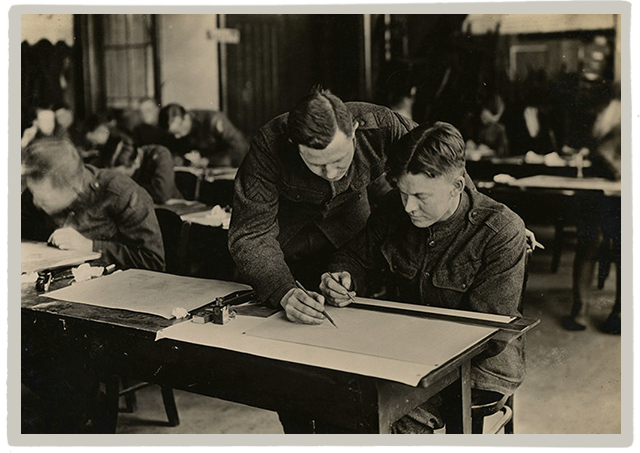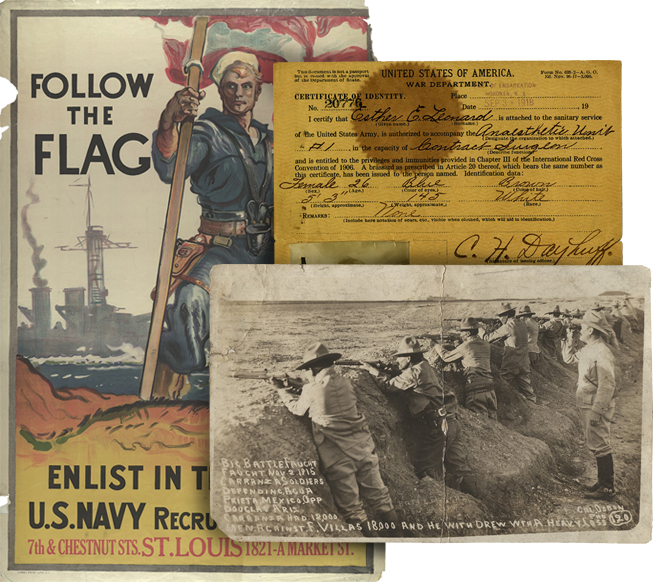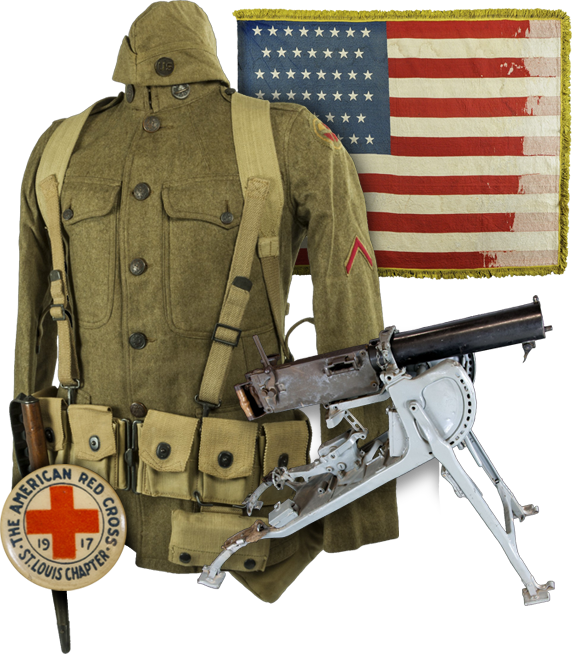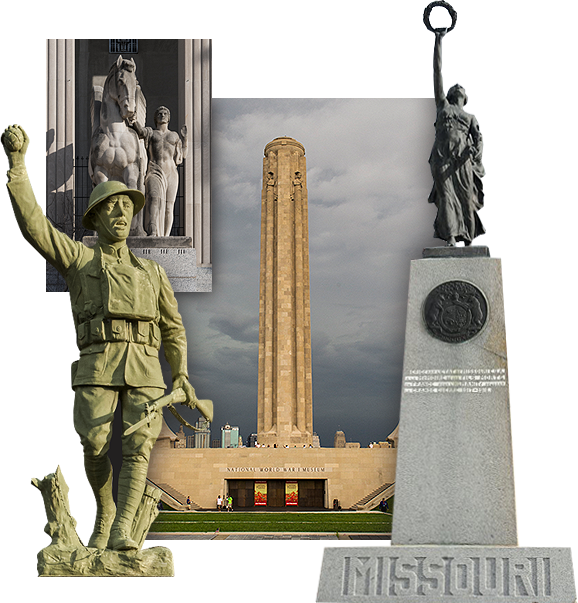Letter from the office of the Judge Advocate General to Newton Baker - April 24, 1917

Transcript
[page 1] War Department, Office of the Judge Advocate General, Washington. April 24, 1917. Memorandum for Secretary Baker. 1. I have just returned from a conference with Congressman Bankhead and others had at your direction with reference to the pending bill. I think I discern a situation in the House (or one certainly affecting many members of it) which is of such importance and affords such an opportunity for effective service that I ought to present it to you now. 2. The bill does, as it must, and as you, we, and perhaps they, know it must, clothe the President -that is, in fact, the War Department - with extraordinary power and discretion as to the methods and means of executing the draft. This is the crux of the situation. The necessary vagueness, uncertainty, and even inability to express the details give rise to vague apprehensions. It is here that assurance is needed, and I feel that you, right now, may properly give it, and, if my judgment is worth anything, out to give it. 3. The difficulty concerns itself more with the matter of personnel, agencies, and methods of administration that with legal principles. Conscription is, though it ought not to be, esteemed as an odious term. It suggests not only the strong arm of an all powerful Central Government, but the military arm at that. The prevalent idea is that a man wearing the military uniform of his Government - which is synonymous with an authority to exercise physical force and compulsion without legal limit - invades the order of civil life and ruthlessly takes from his home a free man and makes of home a sort of government serf. The idea is that the military mind is mechanical, harsh, unsympathetic, with a leaning, perhaps, towards the aristocratic classes. The prevailing idea is that the ventral administration, the head, the agencies, the furthermost tentacles of the system to be purely military. Putting myself in the place of a Congressman, as one must do in order to understand his difficulties, I can appreciate the reasons for the inquiry and the desire to receive assurances that the methods of administration will be such as to insure absolute fairness and based upon a knowledge and regard for our institutions, our people, and their daily lives. 4. Government to our people is a fearsome thing, a thing not understood, a thing that seems to be mechanical and unhuman, a thing that 1

Transcript
[page 2] takes no note of the individual except perhaps to crush him. We must tear aside the veil and reveal the fact that the President, the Secretary of War, and the highest military officers are just plain ordinary human beings, like all others, who do understand our people, who come from them, and who are sympathetic with and for them, and who will respect as far as on principle we can respect, their very human qualities. 5. While, of course, the greatest argument in favor of the draft system is that it is the only effectual one, to my mind the greatest political argument is that it is the only fair one. Ordinary human beings will be far less concerned with the effectuality than with the fairness of the system. Fairness is the greatest text, it seems to me, that a Congressman can have to convert his people to the idea. There is a fear that this vast executive power will be organized and exercised so as to fear some and favor some and result in unfairness. Many questions are raised. Who will determine who shall go and who shall stay? How will that fact be determined? Who are going to administer the law? Will it not be oppressively administered? Will we be approached by the military authorities in the spirit of having us cooperate or of regarding us as a driven herd? The strong arm of the military must not be too apparent. You have planned that it shall not be. You have decentralized. You intend to intrust the execution of the law as it affects our people directly to their accustomed officials. There is to be no military member of the local boards. When all this is revealed much apprehension will be allayed. 6. But central administration must be intrusted to careful hands. The law must be administered in such a spirit of common understanding and a capacity to cooperate; with such sympathy for all civil institutions, our traditions and even our prejudices as to be worthy of and to receive the confidence of our people. I have said before that, loving the Army as I do, I cannot assume, and it is no reflection upon officers of our Army for one not to assume, that the ordinary officer has the requisite qualities. I have already said that there is one man in this Department whom I believe to be superbly qualified. I believe that assurances should be given that the central administration will be guided by a man who is a lawyer as well as a soldier, knows our institutions, our people and their very human qualities. 7. All this is leading up to my suggestion, which is; The letter which has been sent to the governors ought, in my opinion, to be given to the press with an appropriate statement, and assurances should further be given that the central administration is to be under legal supervision, in strict conformity with the law, with nothing omitted to insure fairness and everything done to obviate all suggestion of oppressiveness. S.T.A. 2
Details
| Title | Letter from the office of the Judge Advocate General to Newton Baker - April 24, 1917 |
| Creator | Unknown |
| Source | Unknown. Letter from the office of the Judge Advocate General to Newton Baker. 24 April 1917. Crowder, Enoch H. (1859-1932), Papers, 1884-1942. C1046. The State Historical Society of Missouri, Columbia, MO. |
| Description | Letter from the office of the Judge Advocate General to Secretary of War Newton D. Baker. The author discussed the pros and cons of the bill to enact the draft, and expressed his opinions of how the central administration should handle the bill. This letter is part of a collection compiled by Enoch Herbert Crowder, the Edinburg, Grundy County, Missouri native who served as Judge Advocate General. Crowder devised the Selective Service Act in 1917 which drafted America's forces during World War I. |
| Subject LCSH | Crowder, E. H. (Enoch Herbert), 1859-1932; United States. Army--Recruiting, enlistment, etc.-- World War, 1914-1918; Draft; United States. War Department |
| Subject Local | WWI; World War I; Selective Service Act of 1917 |
| Site Accession Number | C1046 |
| Contributing Institution | The State Historical Society of Missouri |
| Copy Request | Transmission or reproduction of items on these pages beyond that allowed by fair use requires the written permission of the State Historical Society of Missouri: 1020 Lowry Street, Columbia, Missouri, 65201-7298. (573) 882-7083. |
| Rights | The text and images contained in this collection are intended for research and educational use only. Duplication of any of these images for commercial use without express written consent is expressly prohibited. |
| Date Original | April 24, 1917 |
| Language | English |



